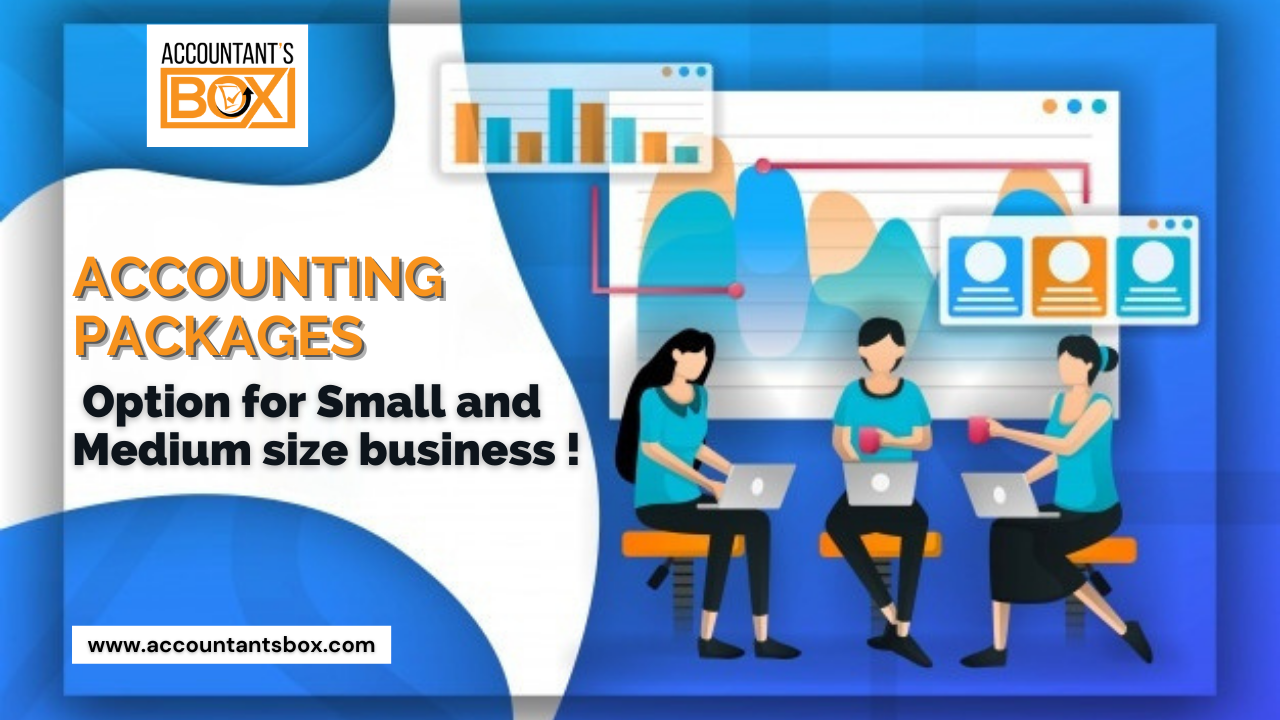
Choosing the right accounting software can be the difference between thriving and struggling for your small business. This comprehensive guide navigates the complexities of selecting an accounting package, offering insights into key features, considerations for different business types, and frequently asked questions. We’ll explore top accounting software options, helping you make an informed decision that streamlines your finances and sets your business up for success. Whether you’re a freelancer, a startup, or a small business owner with a growing team, understanding your accounting needs is paramount, and this guide will illuminate the path toward finding the perfect fit.

Introduction
Running a small business requires juggling many responsibilities, and efficient financial management is crucial for survival and growth. The right accounting package can significantly simplify this process, automating tasks, providing valuable insights, and saving you time and money. This guide explores various accounting packages designed specifically for small businesses, helping you choose the one that best suits your unique needs and budget. From simple invoicing to complex financial reporting, we’ll cover the essential features and considerations to ensure your chosen software supports your business’s long-term success.
Frequently Asked Questions (FAQs)
- Q: What is the difference between accounting software and bookkeeping software?
A: While the terms are often used interchangeably, there’s a subtle difference. Bookkeeping software focuses primarily on recording day-to-day financial transactions, such as invoices, expenses, and payments. Accounting software goes further, offering features like financial reporting, budgeting, and tax preparation tools. Many packages now blend these functionalities, but understanding the core distinctions is helpful when choosing.
- Q: How much should I expect to pay for accounting software?
A: Pricing varies significantly depending on the features offered, the size of your business, and the provider. You can find free or low-cost options suitable for freelancers or very small businesses with basic needs. However, more robust solutions with advanced features often come with monthly or annual subscription fees, ranging from a few tens of dollars to several hundreds, depending on the scale of your business and desired features.
- Q: Do I need accounting software if I’m just starting out?
A: Even if you’re just starting, accounting software is a valuable investment. It helps maintain accurate records from the beginning, fostering good financial habits and providing a strong foundation for future growth. While spreadsheets might suffice initially, dedicated software offers greater efficiency, scalability, and the potential to integrate with other business tools.
Cloud-Based Accounting Software
Cloud-based accounting software has revolutionized the way small businesses manage their finances. The accessibility and collaborative features make it a popular choice.
- Accessibility: Access your financial data from anywhere with an internet connection, enhancing flexibility and convenience.
- Collaboration: Multiple users can access and work on the same data simultaneously, streamlining teamwork and improving efficiency.
- Automatic Updates: Software updates are automatically handled by the provider, eliminating the need for manual updates and ensuring you always have the latest features and security patches.
- Data Security: Reputable providers employ robust security measures to protect your financial data, often exceeding the security capabilities of individual computers.
- Scalability: As your business grows, you can easily upgrade your plan to accommodate increasing data volume and more advanced features.
- Integration: Many cloud-based packages integrate seamlessly with other business applications, streamlining workflows and improving overall efficiency.
On-Premise Accounting Software
This traditional approach involves installing software directly onto your computer. While less prevalent now, it still holds value for some businesses.
- Control: You have complete control over your data and its location. This can be crucial for businesses with stringent data security requirements or those concerned about internet connectivity.
- Offline Access: You can access your data even without an internet connection. This is particularly useful in areas with unreliable internet service.
- Customization: Some on-premise solutions offer greater customization options compared to cloud-based alternatives, allowing tailoring to specific business needs.
- Security: While potential security breaches remain, you can employ additional security measures tailored to your specific IT infrastructure.
- Cost: The upfront cost of purchase can be higher compared to cloud-based subscription models. Ongoing maintenance and updates can also incur additional expenses.
Mobile Accounting Apps
These apps provide convenience and mobility, enabling you to manage your finances on the go.
- Accessibility: Manage your finances anytime, anywhere, from your smartphone or tablet.
- Real-Time Updates: Many apps offer real-time data synchronization, ensuring your financial information is always up-to-date.
- Ease of Use: Designed for intuitive navigation, these apps are easy to learn and use, even for users with limited accounting experience.
- Notifications: Receive alerts about due invoices, upcoming payments, and other crucial financial events.
- Integration: Many mobile apps integrate with cloud-based accounting software and other business tools.
- Limited Functionality: Mobile apps often provide a subset of the features available in full desktop versions.
Choosing the Right Accounting Software for Your Business Size
The ideal accounting package depends greatly on your business’s size and complexity.
- Small Businesses (Freelancers/Solopreneurs): Simple, user-friendly software focusing on invoicing, expense tracking, and basic reporting is sufficient. Cloud-based options often offer excellent value.
- Growing Businesses: As your business scales, you’ll need more robust features like inventory management, multi-user access, and advanced reporting capabilities. Consider cloud-based solutions with scalability options.
- Large Businesses: Enterprise-level accounting software with comprehensive features, robust security, and integration with numerous other business applications is essential for managing complex financial operations.
- Consider: Start small and simple, then upgrade as you grow. This prevents unnecessary expenses in the early stages.
Integrating Accounting Software with Other Business Tools
Integrating your accounting software with other tools used in your business can significantly enhance efficiency.
- CRM (Customer Relationship Management): Connect your accounting software to your CRM to automate invoice generation and track customer payments effectively.
- eCommerce Platforms: Integrate your accounting software with your online store to automatically record sales and manage inventory.
- Payroll Software: Streamline payroll processing by integrating your accounting software with a payroll system.
- Project Management Tools: Track project profitability and expenses more efficiently by connecting your accounting software to your project management system.
- Banking and Payment Gateways: Automate bank reconciliation and payment processing through direct integrations. This reduces manual data entry and improves accuracy.
Conclusion
Selecting the right accounting package is a crucial step for any small business. By carefully considering your specific needs, budget, and future growth plans, you can choose a solution that streamlines your financial management, saves you time, and contributes to your business’s overall success. Don’t underestimate the power of efficient accounting; it’s the backbone of a healthy and prosperous business. Remember to research thoroughly, compare options, and leverage free trials to find the perfect fit for your unique circumstances. Investing in the right software is an investment in your business’s future.
